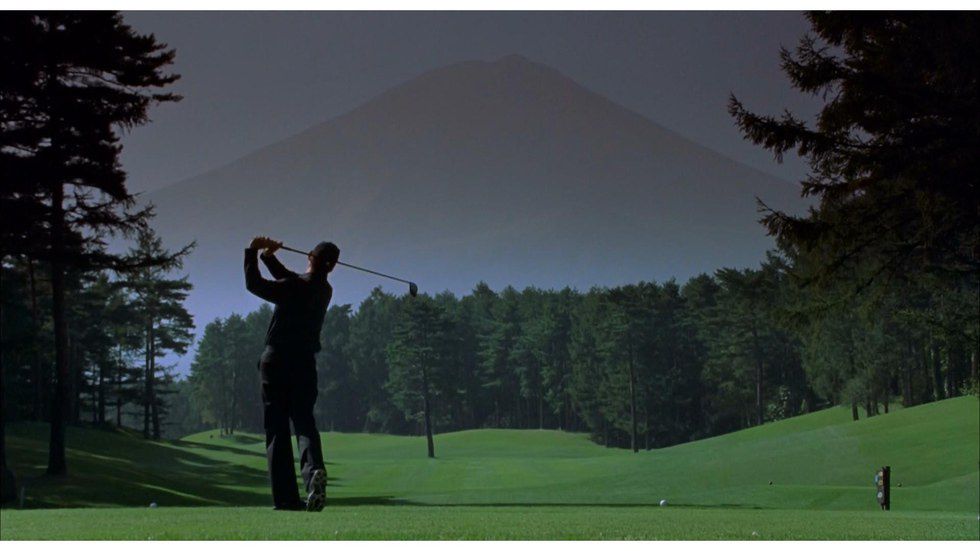When I think of golf the first image that materializes in my mind is my grandpa leaning against a club he purchased at a yard sale, affectionately waiting for me to tee off. The rest of the memory then surrounds me to complete the picture. The clouds float in beneath a sky the color of worn jeans, while the sun sits in place, less beaming and more swollen in that inescapable mid-July way, casting puffy shadows over the course's expanse of green.
I don't remember that first initial swing or even the following one and I especially don't recall if I played well or not that day. What I do remember is that focusing on aspects of the game such as being over or under par should be secondary. Golf can be a chance to place more emphasis on the journey of a day's play instead of the destination. If that sounds trite it's because it is, but underneath every banal saying is a kernel of real truth.
If you look at golf as an exercise in being fully conscious of everything around you then it becomes a pertinent metaphor for finding ways to be more zen. When I say zen I just mean being more aware and mindful of the moments we pay little to no attention to on our daily shuffle. This isn't really about broadcasting the spiritual/mystical wonders of Eastern religion. It's about learning how to pay just as much attention to the micro side of life as the macro.
An intimate familiarity with both your mind and body is required to hone your golf swing to the desired level of satisfaction. You have to know the subtle intricacies that separate an inhale from an exhale, why you're more comfortable swinging with your dominant hand and, most importantly, how to be comfortable with your own thoughts. Instead of silencing your stream of consciousness you have to float down it without judgement.
This applies in equal measure to completely ordinary things like sitting in a desk, driving or walking down the street. If you want to test it try paying really close attention when you brush your teeth tomorrow morning. Instead of letting your mind wander to the past or future, notice how the bristles make your gums itch a little bit and how familiar the taste of toothpaste has become to you.
It's great to be in control of who you are as one individual person, but in golf, just as in life, you also have to contend with a vast landscape you have no control over. How you engage with the course is completely up to you though.
One way is to fight it and become angry when nature proves that you aren't the center of the universe. Another way is to realize that golf isn't about winning. It's about being the best player you are in that exact moment and the only way to truly improve is to be faced with adverse circumstances.
However, awareness doesn't equal acceptance. To bring this back to the real world, say someone cuts you off in five o'clock traffic. Being aware of the situation doesn't necessitate an angry retaliation whereas being accepting doesn't mean you completely brush it off.
The mindful way to deal with it would be to recognize the person who cut you off as someone who has very human wants, needs and dreams just like you. Then dwell on how annoyed you were by the behavior and make it a point to not repeat it in your own life. You rarely ever go wrong by treating people the way you would like to be treated.
When a golfer botches their swing you often hear some indignant variation of I'm not myself today. Yet, for better or worse, you're always yourself and setting unrealistic expectations for your life is a quick route to unhappiness. After all, being perfect leaves you no room to change, which kind of negates the point of living in the first place.
Your faults form who you are just as much as your strengths. Instead of putting yourself down for your foibles try to make small mindful changes, moment to moment, so your journey in life will be one of steady change.
To quote Radiohead's Optimistic, "You can try the best you can. The best you can is good enough."
























